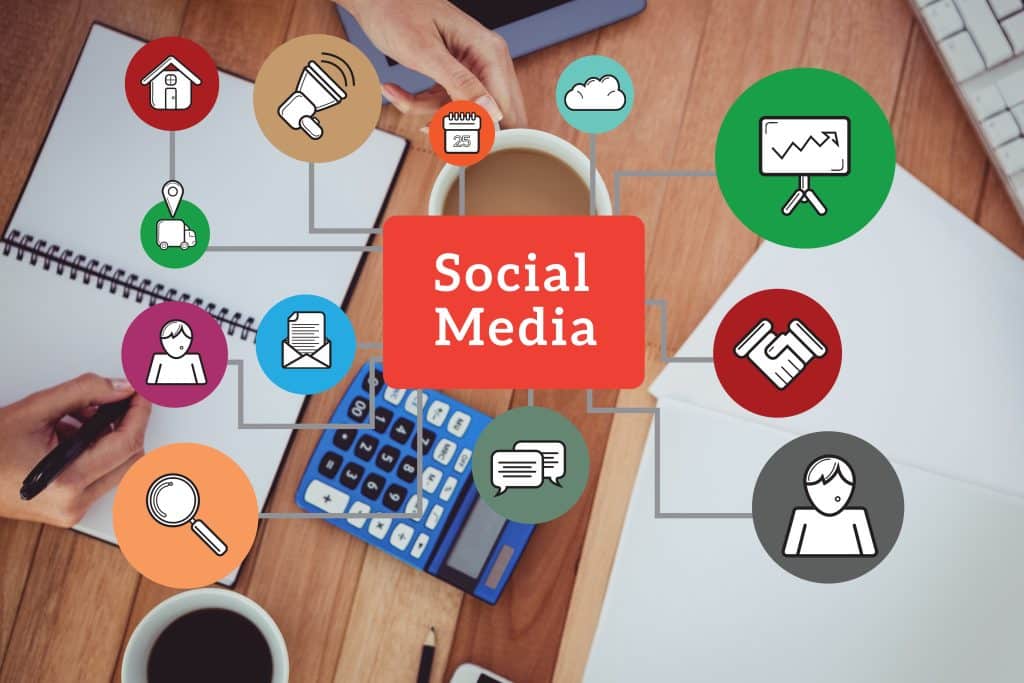How Social Media Marketing Can Help Small Businesses Grow
Emily Clarke August 11, 2025
In today’s digital-first world, small businesses have more opportunities than ever to compete and thrive. Gone are the days when digital marketing was reserved only for large corporations with hefty marketing budgets. Today, small businesses have access to powerful tools and platforms that allow them to reach their target audience with ease and efficiency. As we look ahead to 2025, it’s clear that digital marketing will continue to play a pivotal role in the success of small businesses. Here’s why it’s more important than ever.

The Role of Social Media in Modern Marketing
Social media has become an essential marketing tool for businesses of all sizes, but for small businesses, it offers particular advantages. With limited budgets and resources, small businesses can leverage social platforms to reach vast audiences, engage with potential customers, and build brand recognition. But the real power of social media marketing lies in its ability to connect businesses directly with their target audience in real-time, making it possible to foster meaningful relationships.
Why Social Media Marketing Matters for Small Businesses
- Affordability: Social media platforms offer low-cost advertising compared to traditional forms of marketing like television, print, or radio.
- Global Reach: With billions of active users across platforms like Facebook, Instagram, TikTok, and Twitter, small businesses can reach a global audience without breaking the bank.
- Direct Engagement: Social media allows businesses to communicate directly with customers, gather feedback, and tailor their messaging to meet audience needs.
- Brand Awareness: Social media provides a platform to showcase your business, share content, and build recognition, often leading to organic growth through shares, comments, and likes.
Emerging Trends in Social Media Marketing for Small Businesses in 2025
As we move into 2025, social media marketing continues to evolve with new trends and features that can help small businesses stay competitive. Understanding and leveraging these trends can provide small businesses with valuable advantages in reaching their target market.
1. Video Content Dominates
Video content has become a dominant force in digital marketing. According to a 2024 survey by HubSpot, 85% of businesses use video in their marketing strategy, and 92% of marketers believe video is an important part of their success. This trend is expected to continue into 2025.
Platforms like YouTube, Instagram Reels, TikTok, and Facebook Stories have made it easier than ever to produce short, engaging videos that resonate with audiences. Small businesses can use videos to showcase their products, share behind-the-scenes content, explain services, or even tell their brand story.
Why Video Marketing Works for Small Businesses
- Higher Engagement: Video content is more likely to be shared, liked, and commented on, increasing the visibility of your business.
- Building Trust: Video helps humanize your brand and build trust with your audience by allowing them to see your products and hear from real people.
- SEO Benefits: Videos increase the likelihood of appearing in search engine results, helping your business gain more organic traffic.
2. Influencer Marketing Continues to Grow
Influencer marketing has seen explosive growth, and in 2025, it shows no signs of slowing down. Micro-influencers, who have smaller but highly engaged audiences, have become a key target for small businesses looking to maximize their marketing budget. These influencers can help promote your products authentically, creating a sense of trust among their followers.
How Small Businesses Can Leverage Influencer Marketing
- Find the Right Influencers: Look for influencers whose values align with your brand and whose audience matches your target market.
- Collaborative Campaigns: Rather than just paying for a product review, collaborate with influencers on content creation to make the campaign feel more organic.
- Micro-Influencers: They tend to have a more engaged audience, making it easier for small businesses to get meaningful results with smaller budgets.
3. Social Commerce: Shopping Directly on Social Media
Social commerce, which allows businesses to sell products directly through social media platforms, is a trend that has gained significant traction. In 2025, platforms like Instagram, Facebook, and Pinterest are increasingly offering integrated shopping features, enabling businesses to create seamless buying experiences for consumers within the app itself.
How Social Commerce Helps Small Businesses
- Seamless Shopping Experience: Customers can browse and purchase products without leaving the social platform, reducing friction in the purchasing process.
- Immediate Conversion: Social commerce allows businesses to capture the attention of consumers in real-time, leading to faster purchase decisions.
- Data Insights: Social platforms provide analytics to help businesses understand customer behavior, optimize their product offerings, and improve targeting.
4. The Power of User-Generated Content (UGC)
User-generated content (UGC) has always been a powerful form of social proof, but in 2025, it has become even more essential. UGC refers to content created by customers—whether reviews, photos, videos, or testimonials—shared on social media. For small businesses, UGC can be an invaluable asset.
Why UGC Works for Small Businesses
- Authenticity: Consumers trust content from other customers more than traditional advertising. UGC helps build credibility and authenticity around your brand.
- Engagement: When customers post about your products or services, it increases the chances of their followers discovering your business.
- Cost-Effective: UGC is free content that can be shared across your brand’s social media channels, boosting content creation without extra costs.
5. Chatbots and Social Media Customer Service
As businesses increasingly engage with customers through social media, offering responsive customer service is crucial. Chatbots, powered by AI, are playing a larger role in customer service on social platforms, allowing businesses to provide instant responses to queries and improve customer satisfaction.
Why Customer Service on Social Media is Important
- Real-Time Support: Social media provides a direct line to your customers, allowing you to answer questions, resolve issues, and enhance the overall customer experience.
- Increased Customer Loyalty: When customers feel heard and supported, they’re more likely to return to your business and recommend it to others.
- Cost-Effective: Chatbots and automated customer service tools can handle many inquiries, allowing businesses to focus on more complex customer needs.
Practical Steps to Harness Social Media Marketing for Your Small Business
To maximize the benefits of social media marketing, small business owners should take a proactive and strategic approach. Here’s how to get started:
1. Define Your Target Audience
Before diving into social media marketing, it’s essential to clearly define your target audience. Understand their demographics, interests, and behavior. This helps you tailor your content and messaging to resonate with the people most likely to purchase from your business.
2. Choose the Right Platforms
Not all social media platforms are created equal. Choose the platforms that align best with your audience and business goals. For example:
- Instagram and TikTok are great for visual products and younger audiences.
- Facebook is still a top platform for local businesses targeting a broad age range.
- LinkedIn is ideal for B2B businesses looking to engage with professionals.
3. Create Consistent, Engaging Content
Consistency is key. Regularly post content that adds value to your audience, whether it’s educational, entertaining, or inspirational. Experiment with a mix of content formats, from blog posts and videos to polls and infographics.
4. Track, Analyze, and Adjust
Use analytics tools provided by each platform to track your performance. Look at key metrics such as engagement rates, click-through rates, and conversion rates. Based on these insights, adjust your strategy to improve your results.
Conclusion
In 2025, social media marketing has become more than just a tool for gaining followers. It’s a vital part of a small business’s growth strategy, offering opportunities to build relationships with customers, increase brand awareness, and drive sales. By leveraging trends like video marketing, influencer partnerships, social commerce, and UGC, small businesses can create powerful marketing campaigns that yield long-term results.
By staying up-to-date with emerging trends and using social media strategically, small businesses can effectively compete in today’s fast-paced digital marketplace. Whether you’re just starting or looking to expand, social media marketing offers an accessible and impactful way to help your business grow.
Reference
- Benefits of Social Media Marketing for Small Businesses, https://oregonsbdc.org
- Why Social Media Is Important for Small Businesses in 2025, https://meetedgar.com
- Best Social Media Platforms for Growing Businesses, https://www.salesforce.com







